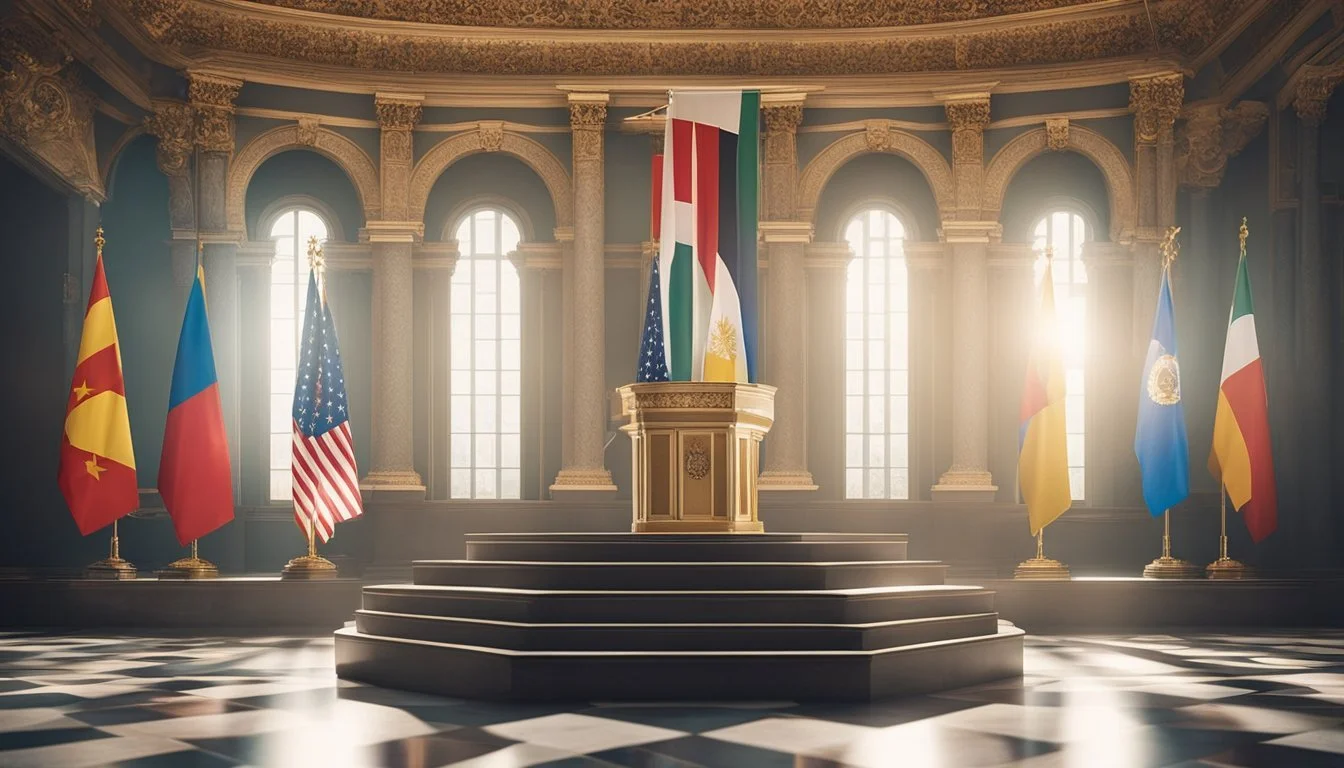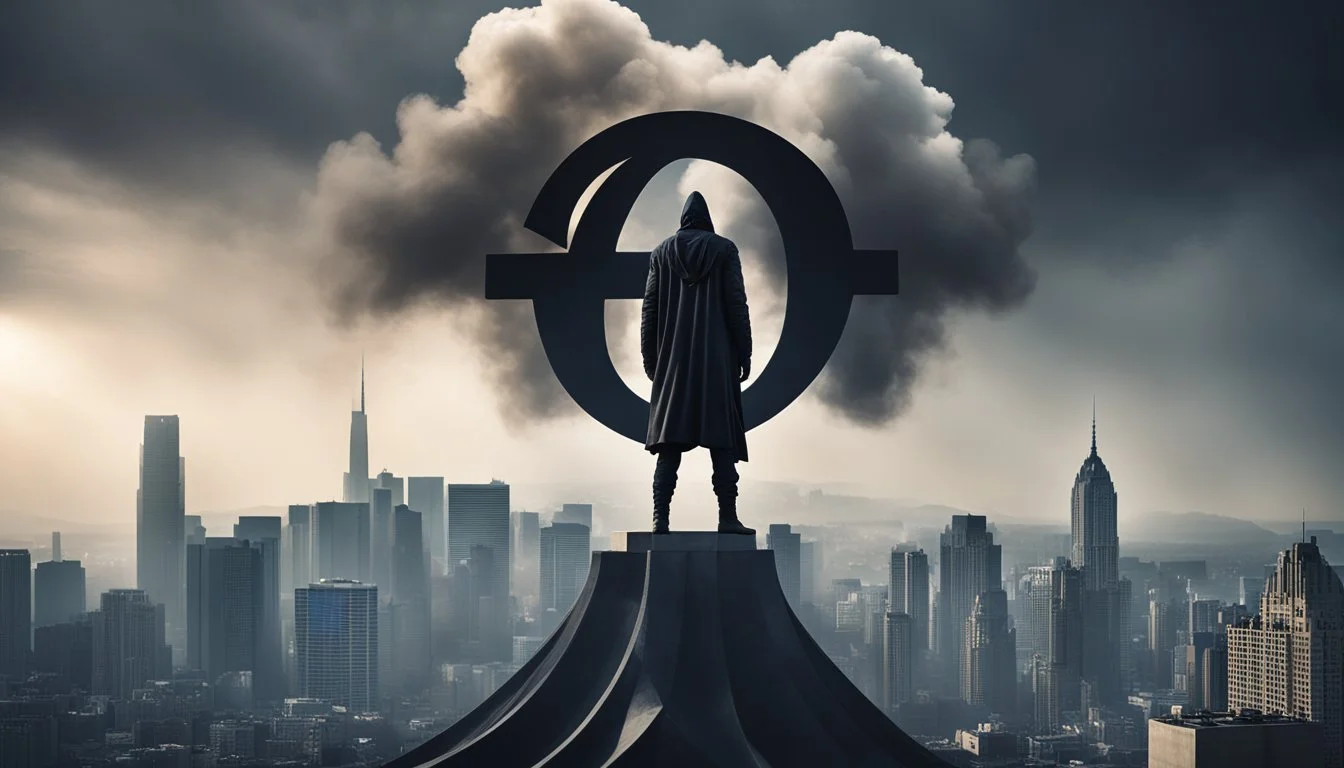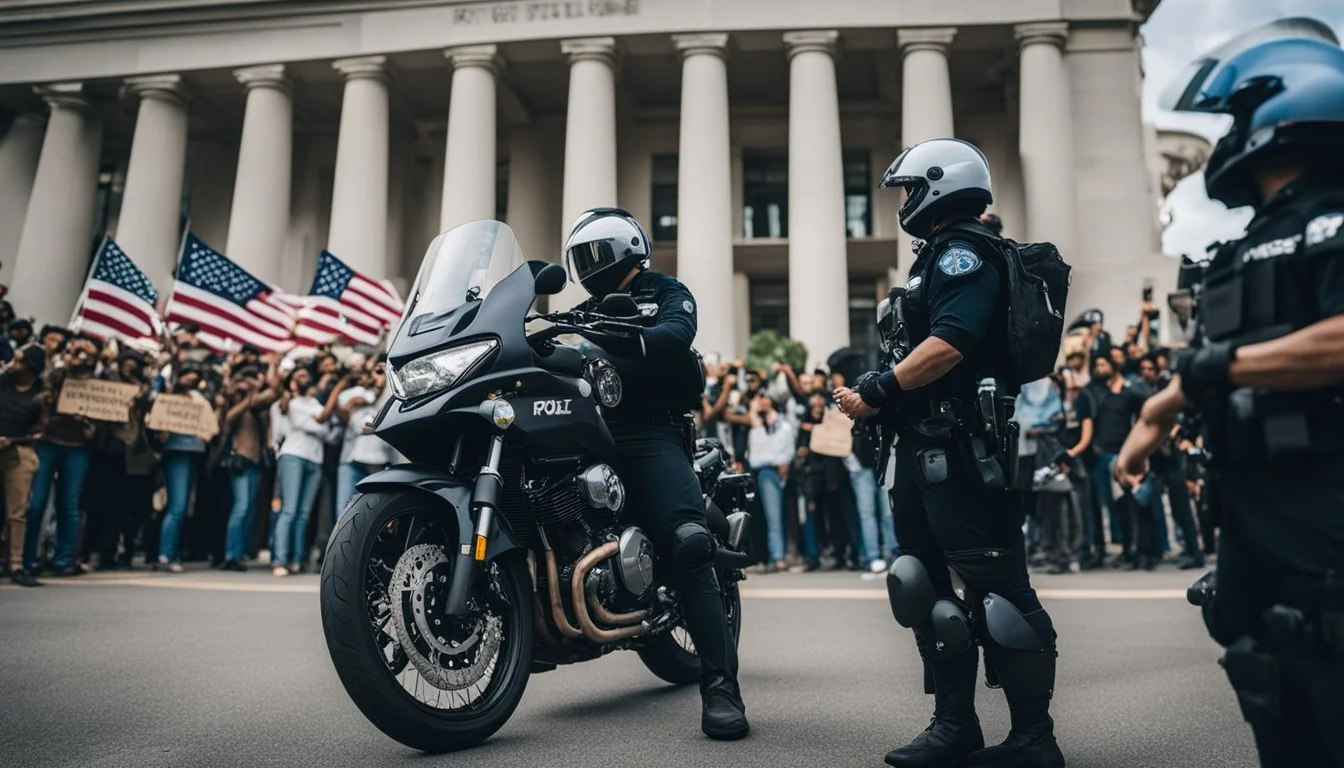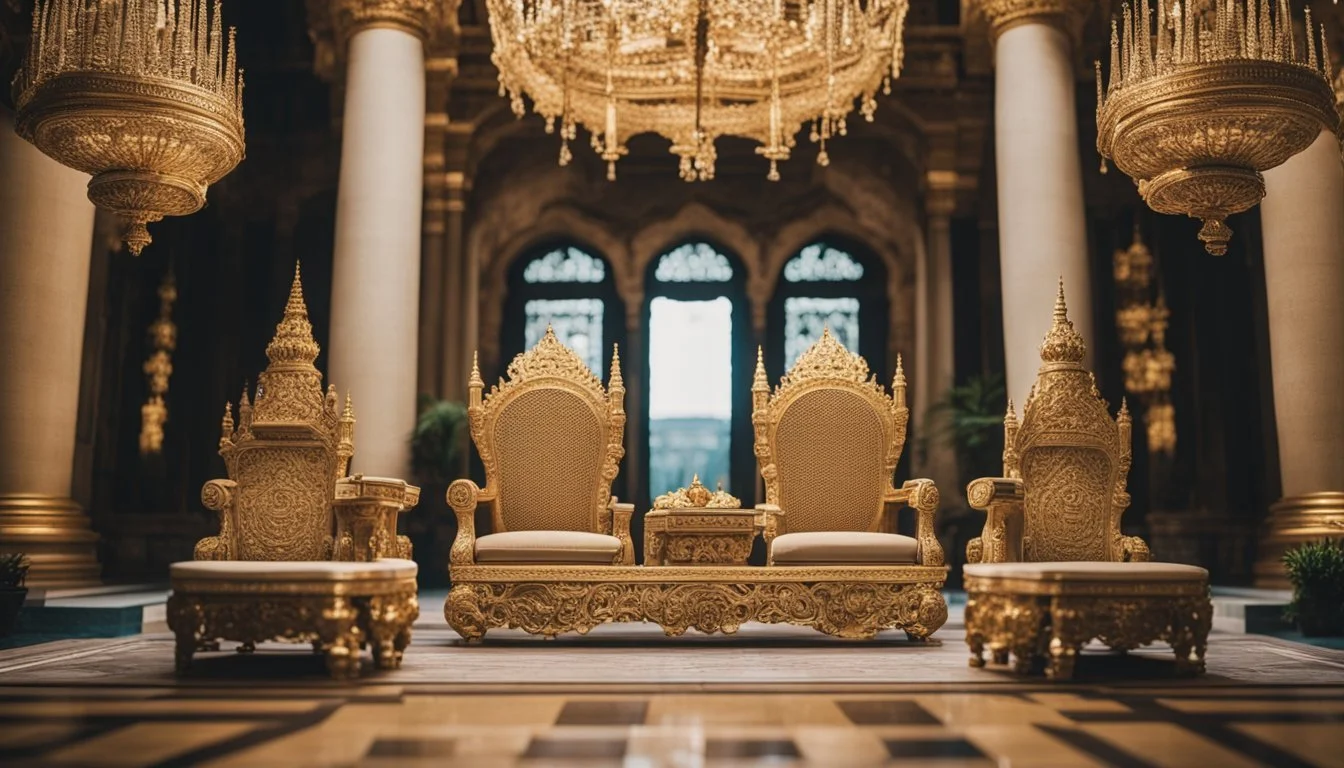9 Films About Political Transitions
A Cinematic Journey Through Change
Political transitions have always provided rich material for filmmakers, offering a lens through which audiences can explore pivotal moments in history and the profound changes they bring. From totalitarian regimes' downfall to the rise of new political ideologies, these narratives capture the complexities and stakes involved in reshaping societies.
These films serve not just as entertainment but as powerful educational tools, presenting viewers with in-depth portrayals of political upheaval and its human impact. By delving into different eras and regions, audiences gain insight into the universal struggles for power, justice, and freedom that define our world.
1) The Death of Stalin (2017)
The Death of Stalin is a political satire black comedy that examines the chaotic power struggle following the death of Soviet leader Joseph Stalin. Directed by Armando Iannucci, it portrays the political maneuvering among Stalin's closest advisors.
The film is based on the French graphic novel "La Mort de Staline." It features a stellar cast, including Steve Buscemi, Simon Russell Beale, and Jeffrey Tambor.
Notable for its dark humor, the film was banned in Russia due to its controversial depiction of historical events.
For more information, visit Wikipedia.
2) Good Bye Lenin! (2003)
"Good Bye Lenin!" is a German tragicomedy film directed by Wolfgang Becker. It explores the period around the fall of the Berlin Wall in 1989 through the perspective of a family in East Germany. The mother, Christiane, a staunch supporter of socialism, falls into a coma, missing the pivotal changes taking place.
When Christiane awakens, her son Alex goes to great lengths to protect her from the shock of learning that the socialist state she loved has collapsed. This involves recreating the world of East Germany within their home, a challenging and comically absurd task.
The film skillfully combines personal and political narratives, capturing the emotional and social upheaval of German reunification. It examines themes of loyalty, truth, and the lengths to which people go to shield loved ones from harsh realities.
The cast includes Daniel Brühl, Katrin Sass, Chulpan Khamatova, and Maria Simon. "Good Bye Lenin!" was not only successful in Germany but also internationally acclaimed for its poignant depiction of a significant historical moment.
For more information, visit IMDb.
3) V for Vendetta (2005)
"V for Vendetta" is a dystopian political action film directed by James McTeigue and written by the Wachowskis. Set in a future where a totalitarian regime rules the UK with an iron fist, the story follows V, a masked vigilante, who aims to ignite a revolution.
The film’s exploration of political themes is compelling. It delves into censorship, surveillance, and government control, all while weaving a narrative about individual freedom and resistance.
Featuring an iconic performance by Hugo Weaving as V, the film also stars Natalie Portman as Evey Hammond, who becomes an integral part of V's mission.
"V for Vendetta" draws heavily from the graphic novel by Alan Moore and David Lloyd. Although Moore distanced himself from the film, its adaptation remains a thought-provoking commentary on governance and personal liberty.
Released in 2005, this film resonates with contemporary political climates worldwide. Through its narrative and visual style, it engages viewers in a dialogue about justice, power, and civil disobedience.
More information can be found here.
4) Milk (2008)
"Milk" is a biographical drama directed by Gus Van Sant. The film portrays the life of Harvey Milk, the first openly gay man elected to public office in California. Milk's election to the San Francisco Board of Supervisors marked a significant political transition for the LGBTQ+ community.
Sean Penn stars as Harvey Milk, delivering an acclaimed performance that earned him an Academy Award for Best Actor. The film also features Josh Brolin as Dan White, a fellow city supervisor. It highlights the personal and political challenges faced by Milk as he championed gay rights.
The narrative captures the societal attitudes of the 1970s, emphasizing the resistance and support Milk encountered. His story is one of perseverance, activism, and change, serving as a powerful reminder of the impact individuals can have on political movements.
"Milk" received critical praise for its direction, screenplay, and performances. It won two Oscars and was nominated for several others. The film remains a poignant exploration of political and social change.
For more information on "Milk," visit the Wikipedia page or IMDB page.
5) The Lives of Others (2006)
The Lives of Others is a riveting German drama directed by Florian Henckel von Donnersmarck. It marks his feature film directorial debut.
The story is set in East Berlin in 1984, during a period of intense surveillance by the Stasi, East Germany's secret police.
Captain Gerd Wiesler, portrayed by Ulrich Mühe, is a Stasi officer tasked with monitoring a playwright and his girlfriend.
As Wiesler becomes deeply involved in their lives, he starts to question his loyalty to the regime.
The film expertly captures the oppressive atmosphere of East Germany before the fall of the Berlin Wall.
It also explores themes of loyalty, humanity, and the impact of political systems on individuals.
The Lives of Others has garnered widespread acclaim, winning the Academy Award for Best Foreign Language Film.
For more information, visit Wikipedia.
6) The Motorcycle Diaries (2004)
The Motorcycle Diaries follows the early travels of Ernesto "Che" Guevara and his friend Alberto Granado across South America. The film captures their road trip, initially taken on a dilapidated motorcycle.
Throughout the journey, Guevara encounters the harsh realities of poverty and social injustice, which significantly influence his political awakening.
Directed by Walter Salles, the film is based on Guevara's memoirs. The portrayal offers a glimpse into the experiences that shaped his future as a revolutionary leader. The narrative balances elements of adventure and self-discovery.
The transition from carefree travel to a deeper understanding of societal inequalities marks the evolution of Guevara’s character.
The Motorcycle Diaries provides insight into the formative years of a figure who would later become a prominent Marxist guerrilla leader. It captures a pivotal moment in his transformation from medical student to radical thinker.
More information on The Motorcycle Diaries (2004)
7) Lincoln (2012)
"Lincoln," directed by Steven Spielberg, offers a focused look at the final months of President Abraham Lincoln's life. Daniel Day-Lewis delivers a captivating performance, embodying the complex leader as he pushes for the passage of the Thirteenth Amendment.
The film delves into the political maneuvering and ethical dilemmas that Lincoln and his team faced. The narrative centers on the struggle to end slavery and presents Lincoln not just as a revered leader but as a shrewd politician.
Tommy Lee Jones also shines in his portrayal of Thaddeus Stevens, adding depth to the depiction of the era's political climate. The film is both a historical drama and a study of a pivotal moment in American history.
For more information about "Lincoln," visit its Wikipedia page.
8) Frost/Nixon (2008)
"Frost/Nixon," directed by Ron Howard, is a historical drama that explores the famous televised interviews between British talk-show host David Frost and former U.S. President Richard Nixon in 1977. Michael Sheen portrays Frost, while Frank Langella takes on the role of Nixon.
The film was adapted from the 2006 play by Peter Morgan, who also wrote the screenplay. It captures the intense intellectual and emotional battle between the interviewer and the former president.
Through meticulous attention to the real-life transcripts, "Frost/Nixon" provides a dramatic retelling of the post-Watergate era, capturing Nixon's attempts to rehabilitate his public image. The movie illustrates the tense dynamics and stakes involved in the interviews.
The performances by Sheen and Langella have been widely praised, adding depth and authenticity to the characters. Brian Grazer produced the film for Universal Pictures, collaborating with various other production houses from the U.S., U.K., and France.
For more information, you can visit the Frost/Nixon IMDb page.
9) The Last Emperor (1987)
"The Last Emperor" is an epic biographical drama about Puyi, the final Emperor of China. Directed by Bernardo Bertolucci, the film traces Puyi's life from his early ascent to the throne as a young boy to his later years under house arrest by Chinese communists.
Starring John Lone as Puyi, the film is praised for its compelling storytelling and technical achievements. Notably, it was the first film ever allowed to shoot within the Forbidden City, enriching its visual authenticity.
Adapted from Puyi's autobiography, "From Emperor to Citizen," the film showcases Puyi's drastic shift from emperor to commoner, highlighting the profound political changes he endured. The movie's rich historical context and dramatic narrative make it a significant entry in the genre of political transition films.
For more information, visit the Wikipedia page.
Historical Context of Political Transitions
Political transitions have shaped societies by shifting power structures and influencing national identities. Understanding these shifts and recognizing significant historical transitions help to illuminate the forces behind political change.
Understanding Political Transitions
Political transitions involve shifts from one governance structure to another. These could occur through revolutions, coups, or other forms of political upheaval. For instance, Western Europe experienced various transitions influenced by the disenfranchised poor threatening revolution during economic downturns. These shifts often result from economic crises, social movements, or external pressures.
In Latin America, too, transitions occurred due to similar pressures. The role of the elite and the contestation by the poor often characterized these changes. Economic recessions and social inequities typically lowered the opportunity cost for revolution, prompting significant political changes.
Significant Historical Transitions
Significant examples include the French Revolution, which drastically altered the power dynamics in France by dismantling the monarchy and establishing a republic. This transition had profound effects on neighboring countries as well, spreading revolutionary ideas across Europe.
In modern history, the fall of the Soviet Union marked another critical transition. This shift ended decades of communist rule and led to the emergence of multiple independent states. These transitions also involved complex socio-political and economic factors, including internal dissent and external pressures.
These examples demonstrate the multifaceted nature of political transitions and their far-reaching impacts on global and national scales.
Political Themes in Cinema
Political themes in cinema have long served as a reflective surface, showcasing societal changes and the impact of ideology on the human experience. Films can focus on the transformative nature of revolutions or explore the intricacies of political beliefs influencing society.
Depiction of Change and Revolution
Cinema often captures the pulse of political upheavals and revolutions. Movies like Get Out and Us by Jordan Peele utilize horror and satire to highlight societal transformations. Such films vividly portray the struggles, aspirations, and shifting dynamics during periods of dramatic change.
In The Man Who Shot Liberty Valance, flashbacks illustrate the evolution of law and order in the Wild West. Films about real historical events, like Fair Game with Naomi Watts, offer an inside look at political scandals and their repercussions. These narratives focus on the personal and societal impacts of major political shifts.
Influence of Political Ideologies
Film can also reflect and critique political ideologies. Directors like John Sayles, known for works such as Lone Star and Matewan, depict how political beliefs shape communities and individual lives. These movies often explore themes like justice, equality, and freedom.
The Contender addresses gender politics, highlighting the challenges faced by women in male-dominated fields. Movies like The Man Who Shot Liberty Valance delve into the complexities of justice and democracy, showcasing how ideologies influence policy and personal choices.
Political films can thus serve as both mirrors and critiques, engaging audiences in a deeper discussion about the ideologies that shape our world.








